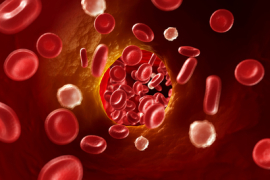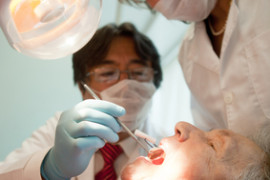New evidence presented in the Journal of Periodontology suggests that xylitol, a sugar alcohol often found in sugar-free gum, inhibits the inflammatory response to one of the most virulent oral pathogens, P. gingivalis.
Xylitol is well known as an anti-caries agent. Until recently, however, few studies have examined xylitol in the context of preventing and treating periodontal disease.
Oral bacteria associated with periodontal disease—among which P. gingivalis is prevalent—enter the bloodstream through periodontal pockets and release toxins. The immune system’s response to this is increased cytokine production and inflammation, a process that can contribute in varying degrees to heart disease, stroke, and rheumatoid arthritis, among other conditions. P. gingivalis is also associated with transition of macrophages into foam cells in the progression of atherosclerosis in the coronary arteries.
Researchers in this study confirmed that active P. gingivalis infection increased pro-inflammatory cytokine production and that pre-treatment with xylitol reduced this effect. Xylitol was shown to inhibit the effect of P. gingivalis on the immune inflammatory response by disrupting its ability to increase cytokines.
According to research presented in the May 2006 issue of the American Heart Journal, an intensive antimicrobial approach reduces systemic inflammatory markers and systolic blood pressure and improves lipid profiles with subsequent changes in cardiovascular risk.
It appears from this latest study that xylitol may be an important part of that approach, in addition to its use in the prevention and treatment of dental caries.



